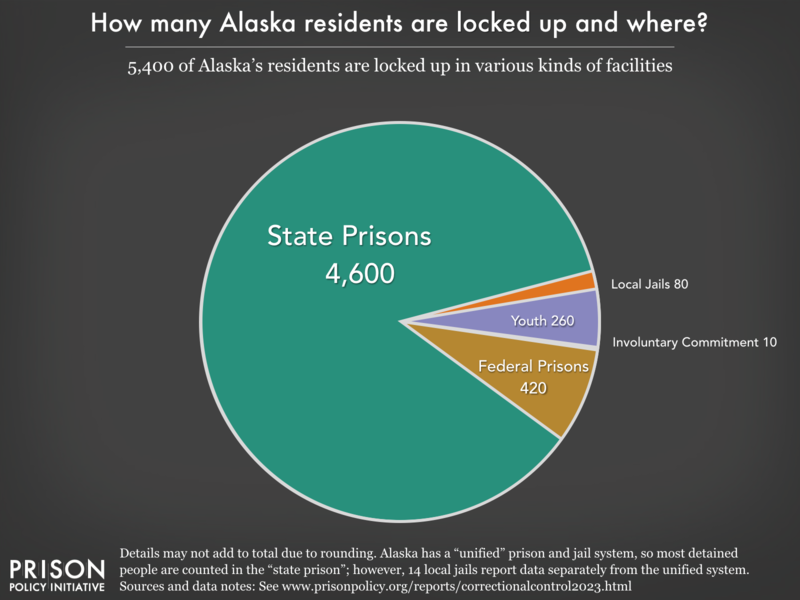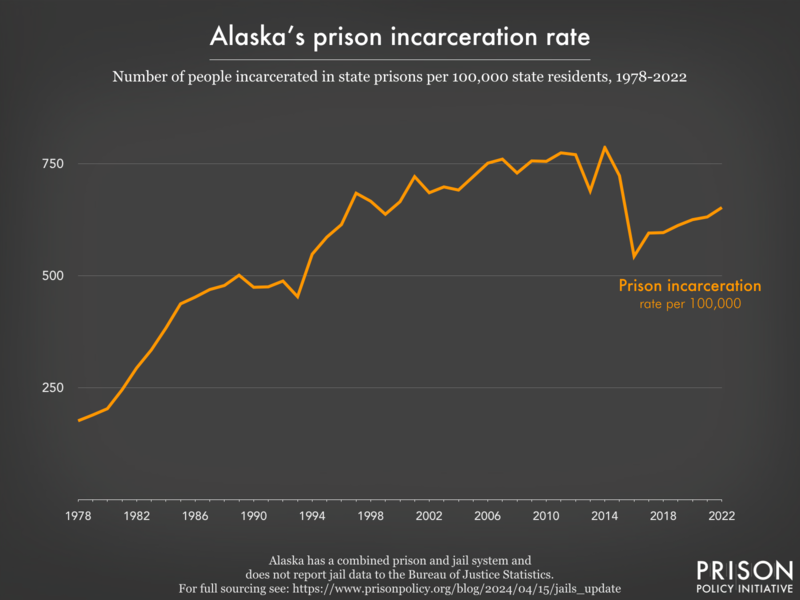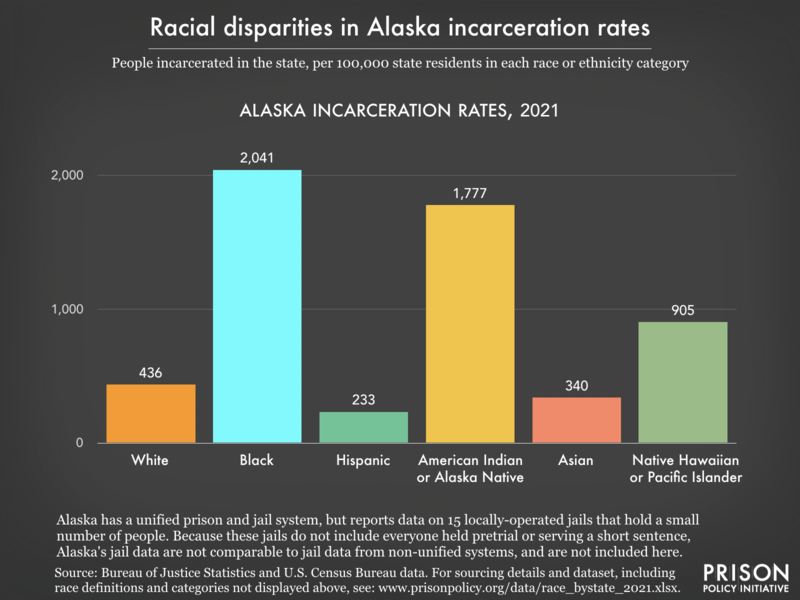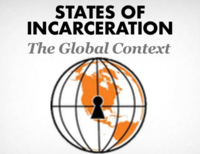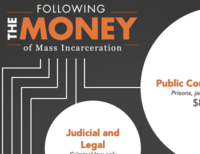Alaska profile
Alaska has an incarceration rate of 744 per 100,000 people (including prisons, jails, immigration detention, and juvenile justice facilities), meaning that it locks up a higher percentage of its people than any democratic country on earth. Read on to learn more about who is incarcerated in Alaska and why.
5,400 people from Alaska are behind bars
Rates of imprisonment have grown dramatically in the last 40 years
- total numbers rather than rates.
- Women’s prisons: Incarceration Rates | Total Population
- Men’s prisons: Incarceration Rates | Total Population
Today, Alaska’s incarceration rates stand out internationally

People of color are overrepresented in prisons and jails
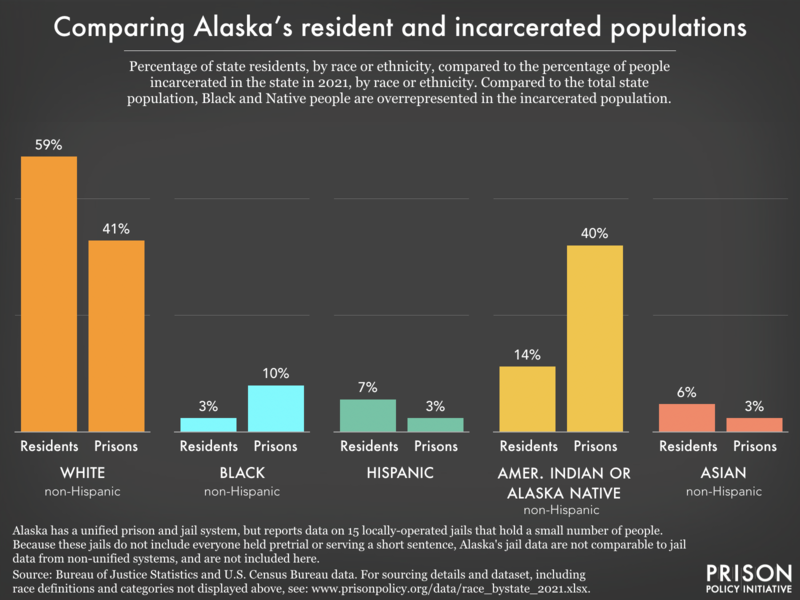
Alaska's criminal justice system is more than just its prisons
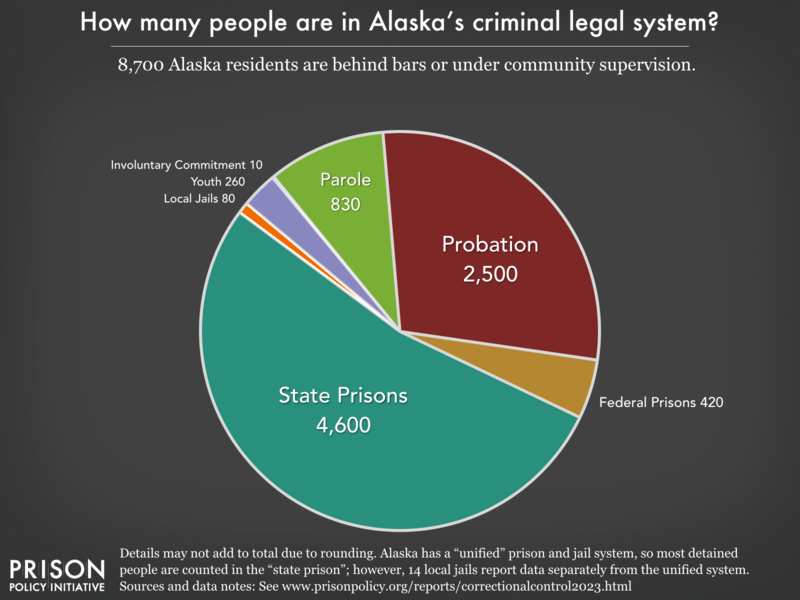
Reports and briefings about Alaska's criminal legal system:
Filter to show
- With an incarceration rate of 744 per 100,000 residents, Alaska locks up a higher percentage of its people than any democratic country on earth.
- Prisons in Alaska force incarcerated people and their families — some of the most vulnerable members of society — to subsidize mass incarceration.
- 38% of people in Alaska prisons have not been convicted of a crime, meaning they're legally innocent. There are simple steps the state can take to reduce this number. Why isn't it?
- Alaska releases roughly 5,748 men and 1,253 women from its prisons and jails each year. What is it doing to support them upon reentry?
- People on parole in Alaska can be sent back to prison for "associating" with anyone who has a felony conviction — even loved ones who are trying to support them
- The parole board in Alaska is releasing 79% fewer people and holding 75% fewer hearings since the pandemic started
- Black people in Alaska are incarcerated at a rate 4.7 times higher than white people.
- Alaska's choice to criminalize "failure to appear" may be hurting public safety
- The cost of incarcerating older people is incredibly high, and their risk of reincarceration is incredibly low, yet 17% of people in Alaska prisons are over the age of 55. Why is the state keeping so many older people locked up?
- Alaska makes it difficult or even risky for incarcerated journalists to tell their stories.
- In Alaska, 5,400 people are incarcerated and another 3,330 are on probation or parole.
- Alaska charges up to 50¢ for an e-message to or from prison; among the highest rates in the nation.
- Jails in Alaska charge up to $3.15 for a 15-minute phone call, reaping profits for companies, while prisons charge $2.10 for a 15-minute call.
- Some Alaska prisons are replacing incarcerated people's personal mail with scans, stifling family contact
- During the pandemic, Alaska suspended medical copays for incarcerated people seeking treatment for COVID-like symptoms. It should end these copays completely.
- Alaska is the only state in the nation that increased its incarcerated population in the first year of the pandemic.
- If a person in Alaska prisons has more than $15 in their commissary account they may not qualify for assistance to purchase essentials like hygiene items and postage. And they may have to pay the state back for any assistance they receive.
- Alaska is one of the few states that does not charge incarcerated people and their loved ones to transfer money.
- We gave Alaska a failing grade in September 2021 for its response to the coronavirus in prisons.
- Alaska hinders jury diversity by excluding people with felony records until they complete probation or parole sentences
- We graded the parole release systems of all 50 states — Alaska gets an F
- Alaska incarcerates women at a rate of 186 per 100,000 residents — higher than any democratic country on earth.
- People in Alaska prisons earn as little as 30¢ an hour for their work.
- Fixing Prison-Based Gerrymandering After the 2010 Census: Alaska
Other resources
- Research on Alaska in our Research Library
Events
- August 5, 2024:
On Wednesday, August 5, 2024, at 3 PM EST, we’ll host a panel of advocates to discuss the importance and challenges of helping people in prison testify at legislative hearings, and introduce our new legislative testimony toolkit.
Panelists include: Anthony Blakenship of Civil Survival, Jesse White of Prisoners’ Legal Services of Massachusetts, and incarcerated journalist Christopher Blackwell.
Register here.
Not near you?
Invite us to your city, college or organization.
